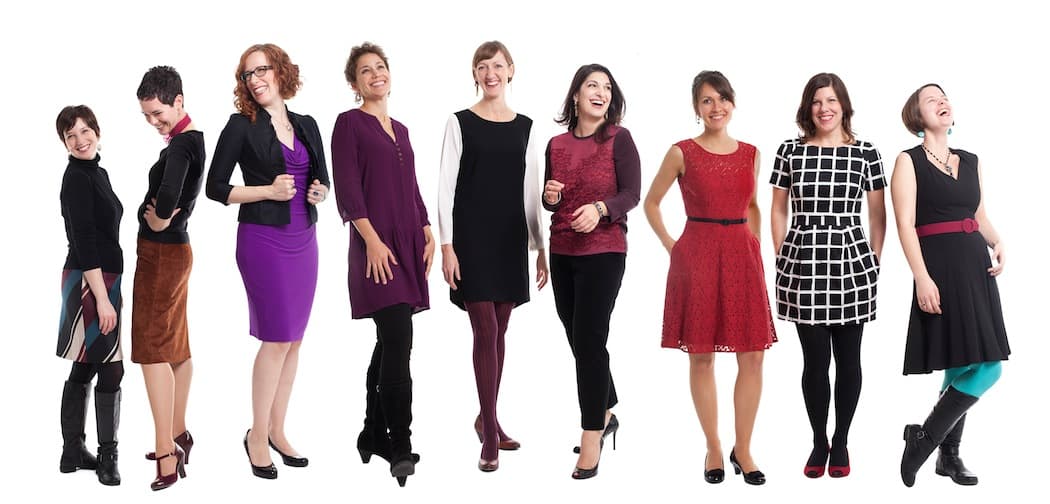Advertisement
All-Female Ensemble Lorelei Sings A Unique Song

“Crazy programs that take trust and experimentation.” That’s the way Beth Willer describes the music of Lorelei, her all-female vocal ensemble.
“I was drawn to the potential, to this otherworldly sound you can get with women’s voices,” Willer adds. “And in contemporary music, we need music that’s not gender specific. That’s not about love and flowers. There’s just not enough depth in the music for women, and we want something that we can feel connected to, and that our audiences can connect to.”
Lorelei has connected with audiences and with other musical ensembles. It has established residencies at BU’s Marsh Chapel and with Harvard University’s Holden Choruses, and pulled off memorable collaborations with Odyssey Opera and the Boston Modern Orchestra Project. It also has a healthy out-of-town series of college residencies that have taken it to Mt. Holyoke, Macalester College and Pittsburg State in Kansas. For the next season, visits to Kentucky, Connecticut and Pennsylvania are lined up. Closer to home, a casual, cocktail-hour series at the Sloane Merrill Gallery on Beacon Hill (called Lorelei on the Rocks) helps raise funds.
Collaboration with other artists is essential for Lorelei. The group’s performances on Friday, May 22 at Marsh Chapel and Saturday, May 23 at Harvard will feature a work by Shaw Pong Liú that incorporates the live calligraphy of Mike Mei.
Shaw Pong’s “Peace is a Woman in a House,” set for various configurations of the Lorelei singers with Shaw Pong playing violin intermittently, has grown from a public art project she conducted with Mike Mei. Investigating the Chinese characters that spell “peace,” Shaw Pong and Mei encouraged passersby in Boston’s Chinatown to create their own set of characters, and thus their own meanings, for peace.
“The character for peace is a combination of two radical characters—characters that cannot be broken down into subsidiary ideas,” Willer says. “In this case, a woman, and a house. Shaw Pong has explored the alternate possibilities in many ways, including interviewing people.”
From the interviews, Shaw Pong wrote a libretto, and from the text of the libretto and from the actual pitches in the music, Mei will create a live calligraphic interpretation. “Mike will have a huge canvas on the floor, and create while we sing, inspired by the pitch collections and gestures from the vocal material.”
The never-ending challenge of performing rarely heard repertoire—either very early or just-composed—remains Lorelei’s biggest hurdle but also its defining quality.
“We could program something that people would recognize—I’m just less interested in that,” Willer says. “There’s nothing about our programs that will make someone say, ‘I love that symphony’ or ‘I love that composer.’ And I don’t think the ensemble would have the sticking power if it were more run of the mill. It changes the group when they do this unusual repertoire, and they know it.”
Keith Powers, former music critic at the Boston Herald, now freelances for a number of newspapers and magazines. Follow him on Twitter at @PowersKeith.

